The Board of Supervisors on Tuesday unanimously approved a resolution opposing the preliminary route of a proposed electric power transmission line across western Loudoun.
The action comes two weeks after supervisors voted to intervene in the State Corporation Commission’s review of a separate Dominion Energy application to construct new transmission lines across eastern Loudoun.
The western Loudoun line is planned by Florida-based NextEra Energy and has been approved by PJM Interconnection, the organization that coordinates power transmission in the region. It calls for construction of 500 kV lines that would cross Loudoun from the West Virginia border to the Aspen substation south of Leesburg.
The line has been opposed by various environmental and community groups, including the Piedmont Environmental Council and the Waterford Foundation, as well as county residents who decry the impact of data centers and their increasing demand for power infrastructure.
County Attorney Leo Rogers told supervisors that an intent of the resolution would be to encourage NextEra to use existing right-of-way transmission line rights of way for the new lines.
“There's tremendous impact for the county on its rural economic development, agriculture, history, the equine industry, tourism, historic structures and landmarks,” Rogers said.
Supervisor Caleb A. Kershner (R-Catoctin), whose district would be crossed by the transmission lines if the preliminary route is approved, said the location is critical.
“I think it's largely unanimous throughout the community that we find the correct route, which we believe in this resolution is the existing rights-of-way,” he said.
Supervisor Kristen C. Umstattd (D-Leesburg) and Vice Chair Juli E. Briskman (D-Algonkian) both supported the resolution, although Umstattd said she doubted it would achieve what they were hoping.
Briskman asked how using the proposed right-of-way would get the line over the River Creek neighborhood.
“There is right-of-way going across the Potomac down past River Creek, which has towers on it right now,” Rogers said. “It would be maximizing the use of those towers.”
He said currently there are 500 kV and 230 kV lines in that right of way. Adding another 500 kV line could require replacing the towers with updated ones that could carry multiple lines.
“I'm just thinking if they go that route, we're going to get just as much community pushback,” Briskman said.
County Chair Phyllis J. Randall (D-At Large) asked if there could be better communication with the community.

A graphic created by the Piedmont Environmental Council shows, in red, new transmission line corridors under consideration by regulators to meet the power demand of data centers in Loudoun County.
“I am aware of discussions that are ongoing between NextEra and the utility providers in Maryland and Virginia,” Rogers said. “They're looking at existing right-of-way that these lines could go in to bring that power to Northern Virginia. So, it's going to be what right-of-way is it? What are the towers going to look like? What are the circuits going to be? Once we have that information, then we'll have something to go back to the community with.”
Residents concerned about the line, known as the Mid-Atlantic Resiliency Link, have been organizing community meetings to engage Loudouners.
The next of those meetings is scheduled for May 1 at 6 p.m. at the Lovettsville Fire and Rescue Station, hosted by the Loudoun Transmission Line Alliance, Lovettsville.
The alliance is a collective of nonprofits, community and neighborhood associations, and business representatives who have coordinated efforts to oppose new 500kV transmission lines in Rural Loudoun, and calls for use of existing right-of-ways. The Lovettsville chapter is a group of local neighbors working to identify and quantify the impact of the proposed line and to inform the community about how the towers will affect private homes, farms, and businesses along the proposed path.
The meeting is open to the public and will provide an opportunity for residents to learn about the regional power grid challenges that have prompted the proposed line and the public policy decisions that will impact the structure and location of the line.
This article was edited at 12:04 p.m. April 17, to clarify the distinction between the he Loudoun Transmission Line Alliance and the Lovettsville chapter of the alliance.

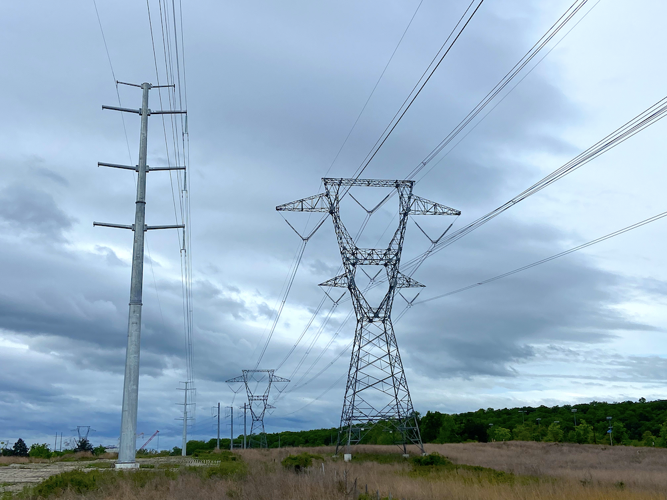
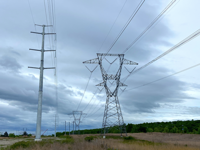

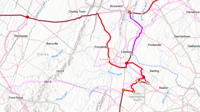
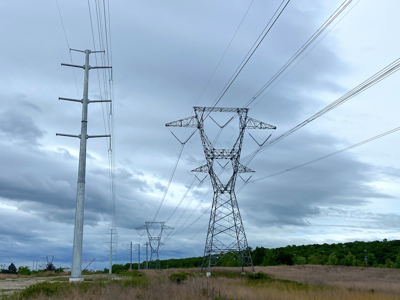


















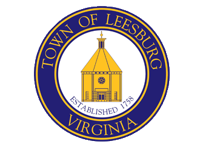

(9) comments
There are solutions that do not require new power lines. Burying lines is not a solution in the sense that such lines would only be buried over short distances, leaving unsolved the impact of new above ground lines across our scenic rural areas. There are two solutions that actually make sense. First, add new power generation close to the data centers that are currently under construction. Second, build data centers elsewhere, again, in places where power generation is available without extending new transmission lines. If necessary, extend the “internet backbone” to these areas. One lie that is currently being ignored is that all the data centers need to be located here because of the “internet backbone.” The internet infrastructure needs to be vastly upgraded anyway due to the projected 100x growth in data traffic. Build the new infrastructure where it doesn’t impact homeowners, small commercial businesses, and our rural economy.
Can we focus on the issue instead of a simplistic yes or no leaving power companies no other choice but to get the federal gov't to demand acquiescence? How about saying yees to only underground power lines along current rights of way including putting the current above ground li es under as well. Then the feds have to deal with an economic choice instead of undoing a blockage which they have the constituional right under interstate commerce to do! Not really that hard!
Unfortunately, the data center industry is several chess moves ahead of the LOCO BOS. This plan was hatched in the 80s-90s by the telco's (yes, we called them telco's then) when miles and miles of fiber was buried underground. The data center industry bulled their way into LOCO with local help and now, especially with the introduction of AI, require enormous amounts of power. What the LOCO BOS supports or doesn't support is inconsequential. It's at the Federal level now, categorized as critical infrastructure.
Loudoun County will never be the same.
The entire board of supervisors should be FIRED over the Data Centers growing. They cause this problem.
Recently, I was approached by Pike Engineering regarding the granting of an underground easement to Dominion Energy for the purpose of "installation, Maintenance, and repair". The new project to provide power to a Data Center in Northern Virginia says that they would only use "existing right of way". If I find out that these two issues are connected, I will be asking your support in filing a class action suit for blatant fraud and subsequent removal of any Loudoun County Officials who are complicit.
I wonder how much campaign contributions Briskman got from the power industry
I find it amazing that everyone wants power, natural gas or connections to social media, yet no one wants the infrastructure necessary to provide it. Or if they do want the infrastructure, they want it in someone else's back yard.
Considering the massive number of data centers the supervisors have decided to allow into Loudoun County, did anyone ever consider the huge power requirements? And when more electricity is needed to fuel an ever increasing number of these power hungry monsters, everyone complains.
We all must realize that there are consequences to all decisions. Those consequences should be researched and understood before the decisions are made and not complain afterwards. It is kinda like not voting but crying about the results.
Residential use is one thing, but the data center are s whole different ball of was. I think initially Data centers were seen as a good money maker for the county, but people didn’t really understand what the data centers did or how much power (and water) they required. Like an addictive drug trying to get the BOS to give up approving data centers now that we are waking up to the down sides is like trying to give an addiction.
Correct, you think it's bad now, look at this statement from Dominion Energy...Dominion said its latest forecast for data center growth is supported by massive customer orders for power to support new projects, which include:
5,827 MWs of capacity with contracts to purchase electricity.
2,008 MWs of projects with construction underway on substations.
8,658 MWs of projects doing engineering studies for future data center campuses.
“The company’s data center forecast is informed and validated by existing contracts with customers that include financial commitments,” said Alan Bradshaw, the Vice President- Strategic Partnerships for Dominion Energy.
Loudoun county has enough land zoned for datacenter build "by right" for 30 GW, so ten times what is built now.
The only limit is the ability to bring the power into Loudoun County. This is a real problem only postponed by reconductoring of existing rights of way. Eventually datacenters need to be collocated with power generation, which is starting to happen.
I doubt that Loudoun County will allow construction of dozens of Small Modular Nuclear Reactors.
The only conclusion is that the growth of datacenters will have to move out of Loudoun.
Welcome to the discussion.
Log In
Keep it Clean. Please avoid obscene, vulgar, lewd, racist or sexually-oriented language.
PLEASE TURN OFF YOUR CAPS LOCK.
Don't Threaten. Threats of harming another person will not be tolerated.
Be Truthful. Don't knowingly lie about anyone or anything.
Be Nice. No racism, sexism or any sort of -ism that is degrading to another person.
Be Proactive. Use the 'Report' link on each comment to let us know of abusive posts.
Share with Us. We'd love to hear eyewitness accounts, the history behind an article.